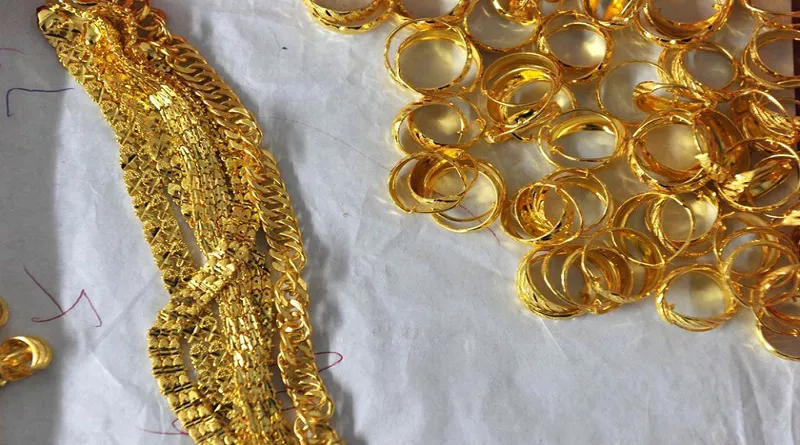The allure of gold has made it a sought-after asset for centuries, and with the rise of online gold purchases and personal collections, the need for reliable home testing kits for gold authenticity has grown. Whether you’re an investor, collector, or just curious about the gold you possess, these kits can provide a convenient way to determine the genuineness of your gold items. In this article, we’ll explore the availability of home testing kits for gold authenticity, their reliability, and answer frequently asked questions related to their use.
I. The Growing Demand for Home Testing Kits
As more individuals engage in gold investments or acquire gold jewelry and coins, there’s a growing need for accessible methods to verify the authenticity of these items. Home testing kits have become a popular solution, offering a quick and convenient way for individuals to assess the purity of their gold.
II. Types of Home Testing Kits for Gold Authenticity
Several types of home testing kits are available on the market, each utilizing different methods to test gold. Here are some common options:
1. Gold Testing Pens
Gold testing pens are straightforward to use and can quickly identify fake gold items. They typically contain a solution that reacts with the metal’s surface. Genuine gold will not react to the solution, while base metals or gold-plated items will show a reaction. While these pens are accessible and budget-friendly, they may not provide precise purity information and can only detect surface-level gold plating.
2. Electronic Gold Testers
Electronic gold testers are more advanced and offer greater accuracy compared to testing pens. These devices use electrical conductivity to determine the purity of gold. By measuring how easily an electrical current passes through the metal, they can provide a reading of the gold’s purity percentage. Electronic testers can be a reliable option for assessing gold coins, bars, or jewelry.
3. Acid Testing Kits
Acid testing kits involve applying nitric acid or another testing solution to a small scratch on the gold’s surface. The reaction with the acid indicates the gold’s purity. While these kits can provide valuable information, they can also damage the tested piece and may not be suitable for valuable or delicate items.
4. X-ray Fluorescence (XRF) Analyzers
XRF analyzers are advanced devices used by professionals to determine the composition of various materials, including gold. They work by emitting X-rays onto the gold and measuring the energy of the emitted X-rays. This information is used to identify the elements present and assess the gold’s purity accurately. While highly accurate, XRF analyzers are expensive and typically not intended for home use.
III. Reliability of Home Testing Kits
The reliability of home testing kits for gold authenticity varies depending on the type of kit and its quality. Here are some key points to consider:
Testing Pens: Gold testing pens are relatively reliable for detecting surface-level gold plating but may not provide precise purity information.
Electronic Testers: Electronic gold testers are generally reliable for assessing the purity of gold items accurately. However, the quality of the device can impact its accuracy.
Acid Testing Kits: Acid testing kits can be reliable if used correctly. However, they can damage the tested item and are less suitable for valuable pieces.
XRF Analyzers: XRF analyzers are highly reliable and accurate but are typically used by professionals due to their cost and complexity.
IV. FAQs (Frequently Asked Questions) on Home Testing Kits for Gold Authenticity
1. Can I use a gold testing pen for all types of gold items?
Gold testing pens are suitable for most gold items, including coins, bars, and jewelry. However, they are best at detecting surface-level gold plating and may not provide accurate purity readings for deeply plated items.
2. Are home testing kits suitable for antique or valuable gold jewelry?
Home testing kits can be used for antique or valuable gold jewelry, but caution is advised. Acid testing kits, in particular, can damage delicate pieces. It’s often recommended to have valuable items professionally appraised and authenticated.
3. How often should I test my gold items for authenticity?
The frequency of testing depends on your level of concern and the nature of your gold holdings. Regular testing may be advisable if you frequently acquire new gold items or are uncertain about the authenticity of older ones.
4. Can home testing kits distinguish between different gold alloys?
Home testing kits can determine the purity of gold but may not identify specific gold alloys or trace elements present in the metal. For detailed analysis of gold alloys, consider professional testing methods.
5. Are there any home testing kits for gold authenticity that professionals recommend?
Professionals often recommend electronic gold testers for their reliability and ease of use. However, the specific brand and model can impact the accuracy of the results, so it’s essential to choose a reputable device.
In conclusion, home testing kits for gold authenticity can be valuable tools for individuals looking to assess the purity of their gold items. While these kits can provide useful information, it’s crucial to select the right type of kit and use it correctly. For highly valuable or antique gold items, consulting a professional appraiser or jeweler is advisable to ensure accurate authentication without risking damage to the items.

